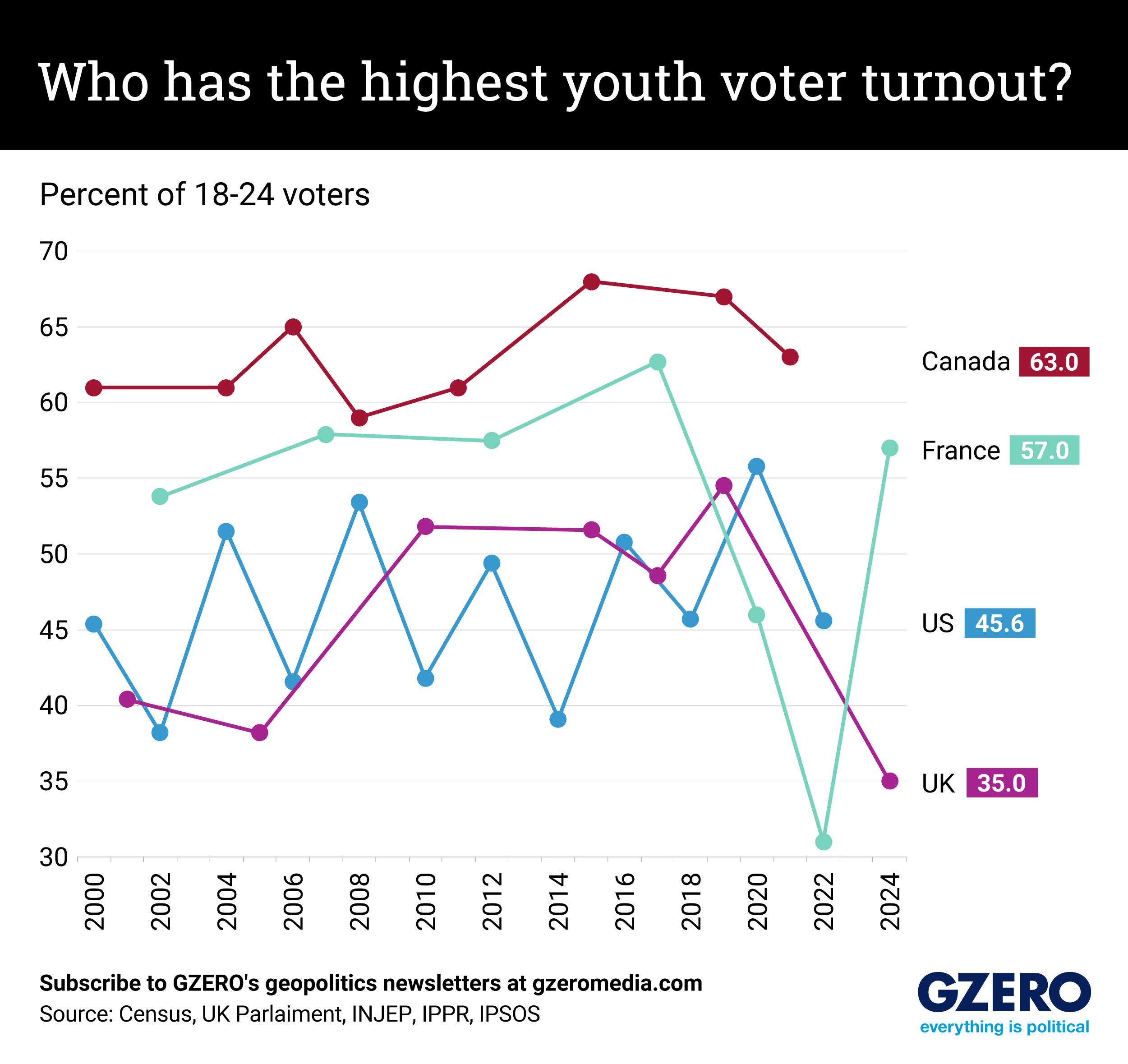September 12, 2024
Ah, the elusive youth vote, a demographic that has been historically unreliable in terms of turnout — but will be key in the extremely close US election. In the 2020 election, about half of voters under 30 voted, up from 39% in 2016. Meanwhile, in Canada, youth participation tends to be higher and more stable, with projections indicating about 60% turnout for young voters in the next federal election.
Following the debate on Tuesday, Taylor Swift endorsed Kamala Harris, leading337,000 people to visit vote.gov, a website that helps first-time voters register to vote.
The pop icon’s endorsement, while unlikely to change the minds of many Donald Trump supporters, could have an outsized impact on turning out Democratic-leaning young voters to write Harris’ name in the “Blank Space”on their ballots.
For context, we looked at youth turnout in recent elections in the UK and France, which helped illuminate that when it comes to young voters nothing is guaranteed. In France, the rise of the far right in the first round of parliamentary elections led to a surge in youth turnout, at 57% of voters. This was up from 31% in 2022. Meanwhile, the UK saw youth turnout plummet to a mere 35% in the 2024 general election. This record low highlights deepening disengagement and frustration among British youth with the political establishment.
More For You
FILE PHOTO: Canadian Prime Minister Mark Carney and India's Prime Minister Narendra Modi shake hands before posing for a photo during the G7 Leaders' Summit in Kananaskis, in Alberta, Canada, June 17, 2025.
REUTERS/Amber Bracken/File Photo
Indian Prime Minister Narendra Modi and Canadian Prime Minister Mark Carney struck a series of deals during a meeting in New Delhi on Monday, including a 10-year nuclear energy deal under which Canada will provide India with uranium.
Most Popular
The US and Israel have launched a series of strikes against Iran at a moment when the Islamic Regime is at its weakest. Ian Bremmer spoke with Iran expert Karim Sadjadpour in Munich earlier this month to understand the choices the regime and population are facing.
- YouTube
With US forces building up in the Middle East, Trump is betting military pressure will force Iran to bend. Will this turn into a full-scale conflict?
- YouTube
Are we still talking. #PUPPETREGIME
© 2025 GZERO Media. All Rights Reserved | A Eurasia Group media company.
